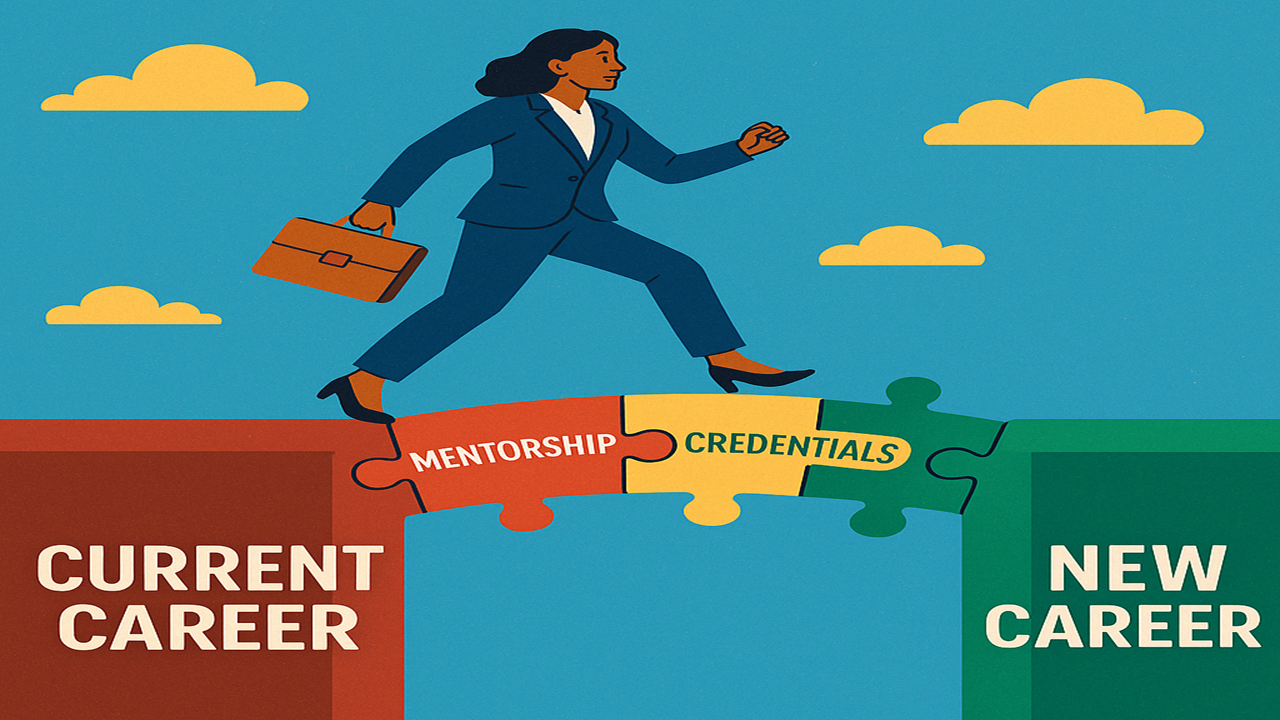Unlocking Career Transitions: Overcoming Common Pain Points

Career transitions are increasingly common, driven by global changes across education, healthcare, and technology sectors. However, transitioning to a new career path can be daunting. Here’s an overview of common pain points and practical strategies to overcome them.
Understanding the Challenges
1. Skills Mismatch
Many professionals face gaps between their current skills and the requirements of new roles. Rapid changes in job requirements, particularly in tech-driven fields, make it challenging to keep up.
2. Credential Barriers
Formal educational credentials often act as gatekeepers, particularly in education and healthcare. This "paper ceiling" prevents capable individuals from accessing new opportunities. This is why a skilled qualification should be an option.
3. Limited Access to Affordable Upskilling
The cost and time associated with additional training can be prohibitive, leaving many unable to pursue necessary reskilling.
4. Lack of Career Guidance
A lack of clear information and personalized career guidance leaves individuals uncertain how to navigate career changes effectively.
Strategic Approaches for Successful Career Transitions
Flexible and Modular Learning
Various learning formats, such as online courses, evening/weekend classes, and intensive boot camps, enable learners to engage according to their schedules.
Intensive Bootcamps
Short, intensive programs that rapidly equip learners with essential skills for entry-level roles are particularly effective for technology and healthcare fields.
Micro-Credentials and Stackable Courses
Focus on courses that build towards recognized credentials, making the learning process affordable and manageable.
Mentorship and Coaching
Pair with experienced mentors who provide continuous guidance and industry insights, significantly enhancing success rates and confidence.
Project-Based Learning
Include practical, hands-on projects that closely simulate real-world tasks, building confidence and competence simultaneously.
Career Fit and Skills Assessments
Use thorough assessments to identify transferable skills and gaps, creating tailored learning pathways and ensuring effective upskilling.
Personalized Learning Pathways
Connect with customized training programs based on your existing skills, interests, and career objectives, facilitating efficient and focused transitions.
Career Navigation Workshops
Find training on resume building or utilize resume templates, interview preparation, and professional networking tailored for career changers.
Building Confidence and Clarity
Ensure to incorporate one-on-one coaching, peer support groups, and mindset workshops to address the psychological aspects of career changes and boost self-belief and resilience.
Your Next Steps
Transitioning careers requires more than learning new skills—it’s about understanding and leveraging your existing strengths, obtaining targeted training, and receiving strategic guidance. Addressing these common pain points with structured support can make your career transition smoother and more successful.
Ready to make a confident career move? Our personalized mentoring and assessment services are designed to support your career transition journey every step of the way.